I have this table that contains my site settings:
I would want to update all records at once with data that comes from a form. The data looks like this:
$data = [
"brand" => "bbb"
"mail" => "kontakt@aaa.pl"
"phone" => "111"
"site-name" => "test"
];
Now I would like to update that with key of the associative array and with it value. I tried:
DB::table('settings')->update($data);
But there is an error:
SQLSTATE[42S22]: Column not found: 1054 Unknown column 'brand' in 'field list' (SQL: update `settings` set `brand` = bbb, `mail` = kontakt@aaa.pl, `phone` = 111, `site-name` = test)
Obviously it thinks that brand is a column name.
So I transformed the $data to this array:
$data = [
0 => [
"name" => "brand"
"value" => "bbb"
]
1 => [
"name" => "mail"
"value" => "kontakt@aaa.pl"
]
2 => [
"name" => "phone"
"value" => "111"
]
3 => [
"name" => "site-name"
"value" => "test"
]
];
and now the error is:
SQLSTATE[42S22]: Column not found: 1054 Unknown column '0' in 'field list' (SQL: update `settings` set `0` = {"name":"brand","value":"bbb"}, `1` = {"name":"mail","value":"kontakt@aaa.pl"}, `2` = {"name":"phone","value":"111"}, `3` = {"name":"site-name","value":"test"})
So now it thinks that index of each row in array is column name and at this place i have no idea how to do this... Can anyone help me please?
